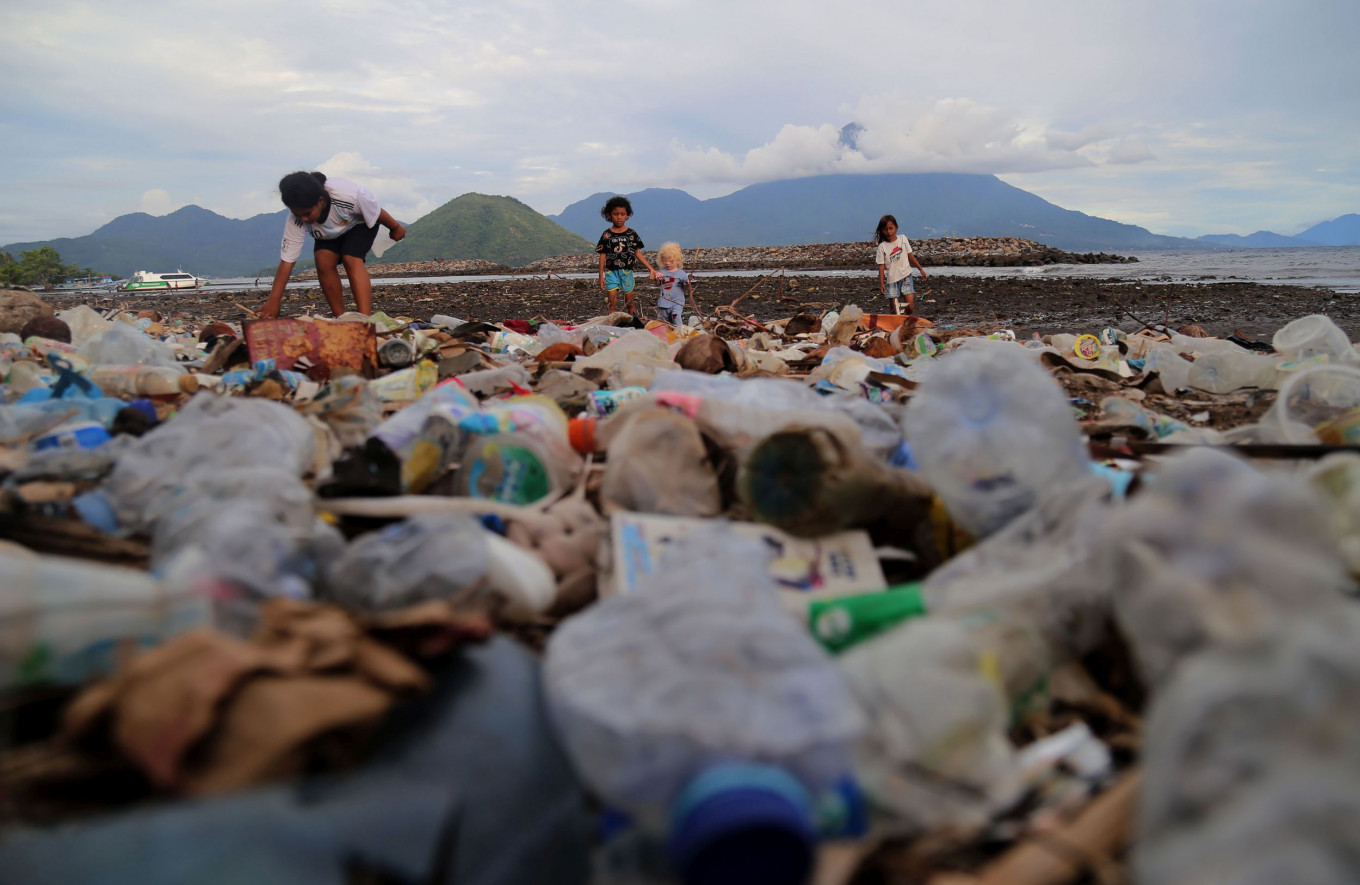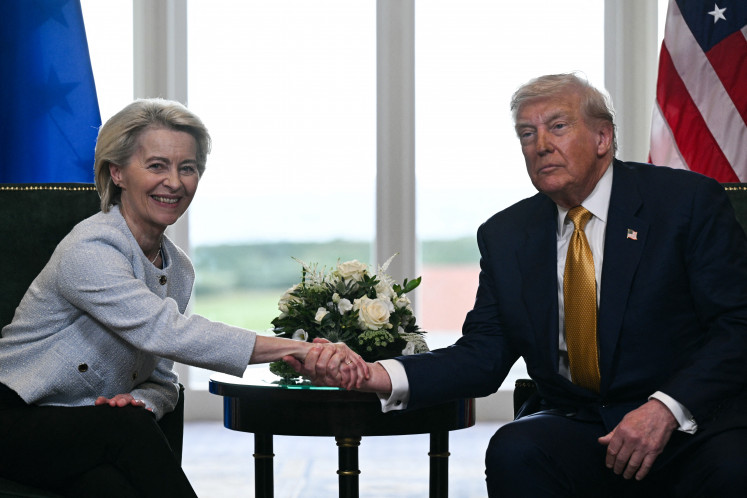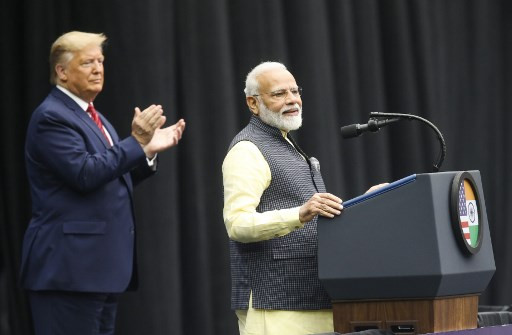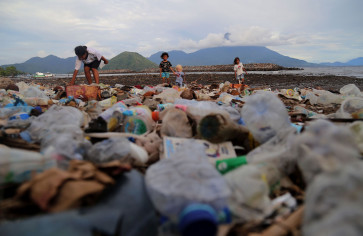Popular Reads
Top Results
Can't find what you're looking for?
View all search resultsPopular Reads
Top Results
Can't find what you're looking for?
View all search resultsRecycling start-up tackles industry headache of low-value plastics
Low-value plastic waste is more expensive to recycle than to produce, but one recycling start-up has found a way to process them and turn a profit.
Change text size
Gift Premium Articles
to Anyone
T
he growing use of low-value plastics (LVPs) in Indonesia is posing a significant challenge for the recycling industry, as the material’s near-zero value makes recycling it too expensive, according to plastic recycling start-up Tridi Oasis.
“Some [plastics] are high in value, and some are low in value or even negative,” Tridi Oasis founder Dian Kurniawati told The Jakarta Post on Thursday.
Recycling the latter would thus be “more expensive than if we throw them away", she explained.
The COVID-19 pandemic contributed to the soaring use of low-value plastics and the resulting jump in waste, especially due to a surge in online shopping and food deliveries during restricted mobility, self-isolation and lockdowns.
LVPs were developed because of their affordability and accessibility, though the environmental risks of their use have yet to be addressed.
Low-value plastics come in many forms, such as drinking straws, single-use shopping bags, condiment sachets, candy wrappers and plastic wrap or films, many of which are used in online shopping and food delivery packages.
They also include plastics that have food residues on them or mixed with other materials, which cannot be recycled.


















